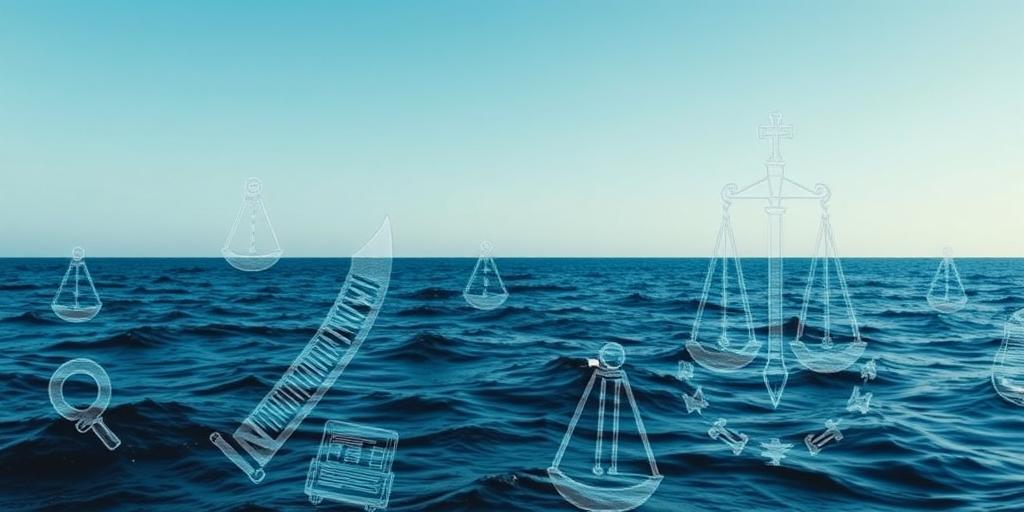The Law of the Sea is a body of international law governing maritime activities and rights. It encompasses various aspects, including navigation, territorial waters, exclusive economic zones (EEZs), and the exploitation of marine resources. The primary legal framework is the United Nations Convention on the Law of the Sea (UNCLOS), adopted in 1982.
Key Concepts:
- Territorial Sea: Extends up to 12 nautical miles from a coastal state's baseline, over which the state has sovereignty.
- Exclusive Economic Zone (EEZ): Extends up to 200 nautical miles from the baseline, granting the coastal state rights to explore and exploit marine resources.
- Continental Shelf: The natural prolongation of a coastal state's land territory to the edge of the continental margin or to a distance of 200 nautical miles.
- High Seas: Areas beyond national jurisdiction, open to all states for navigation, fishing, and other peaceful purposes.
Maritime disputes arise due to conflicting interpretations of UNCLOS, overlapping territorial claims, or disagreements over resource exploitation. These disputes often involve complex legal and political considerations.
Common Types of Maritime Disputes:
- Territorial Disputes: Conflicts over the sovereignty of islands, rocks, or maritime features.
- Boundary Disputes: Disagreements over the delimitation of maritime boundaries, especially EEZs and continental shelves.
- Resource Disputes: Clashes over access to and exploitation of fisheries, oil, gas, and other marine resources.
- Navigation Rights: Disputes over the right of passage through straits or archipelagic waters.
Mechanisms for Dispute Resolution:
- Negotiation: Direct talks between the parties to reach a mutually acceptable solution.
- Mediation: A third party facilitates discussions and helps the parties find common ground.
- Arbitration: Submission of the dispute to an arbitral tribunal for a binding decision.
- Judicial Settlement: Referral of the dispute to the International Court of Justice (ICJ) or the International Tribunal for the Law of the Sea (ITLOS) for a binding judgment.
Understanding the Law of the Sea and the mechanisms for resolving maritime disputes is crucial for maintaining peace, security, and sustainable use of marine resources.









